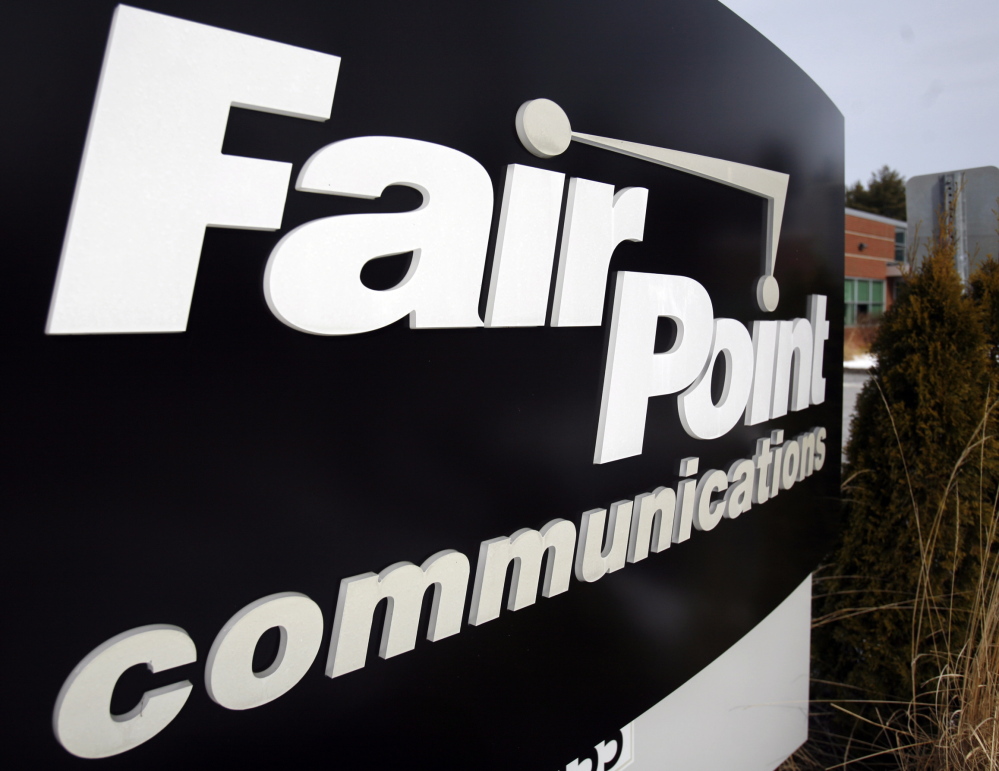FairPoint Communications on Tuesday froze the pensions of nearly 2,000 employees in northern New England, a provision of the telephone carrier’s proposed union contract that it imposed in August without union approval. Workers were dealt another blow recently when a federal labor board dismissed two complaints alleging the company bargained in bad faith.
A top union representative said Tuesday that the pension freeze, along with other recent changes including the loss of retiree health benefits, is likely to “push things to a head,” meaning that either the parties must resume negotiations soon or a strike is imminent.
The International Brotherhood of Electrical Workers and the Communications Workers of America had been in negotiations for a new contract until talks ended in late August when the company announced an impasse, paving the way for an employee lockout or strike.
Union representatives have argued that the negotiation process was not hopelessly deadlocked and have been pushing since then to reopen it. The two unions represent nearly 800 FairPoint workers in Maine.
The company already has stopped providing retiree health care and support for child and elder care.
FairPoint spokeswoman Angelynne Amores Beaudry confirmed Tuesday that employee pensions have been frozen but said it should not have come as a surprise to the workers because it was stated in the proposed contract.
“Part of that included a freeze on defined benefit plans,” she said.
According to an analysis published in the Washington Post in September, only 7 percent of Fortune 500 companies offer a traditional pension plan. About 14 percent offer a defined benefits plan that typically combines 401(k) investments and cash balance. Among the companies that have announced plans to freeze pensions in the last six months are Boeing, TriHealth, Lockheed Martin, the Washington Post and CONSOL Energy.
Amores Beaudry said the reduction of worker benefits is necessary for the company to remain viable.
“The changes we’re making will ensure that FairPoint will be able to offer competitive prices … in the future,” she said.
But Peter McLaughlin, business manager for the IBEW Local 2327 in Augusta, said the elimination of benefits is unacceptable to employees.
“We can’t live with the terms of the proposed agreement,” he said, adding that the pension freeze just pushes the workers closer to a potential strike.
Union representatives, operating jointly under the name Fairness at FairPoint, called on the company’s largest shareholder, hedge fund Angelo, Gordon & Co., to urge FairPoint executives to resume bargaining with the unions “and reach a fair agreement.”
“Angelo, Gordon wants to have it both ways,” Jenn Nappi, assistant business manager of IBEW Local 2327, said in a news release. “It wants to continue to profit from managing the retirement investments of working people from all across the country, while it allows FairPoint, a company in which it controls one-fifth of all shares and has a designee on the board of directors, to freeze the pensions of 2,000 workers in northern New England.”
McLaughlin said the unions have been in discussions with Angelo, Gordon and that it is possible negotiations could resume in the near future. But it hasn’t happened yet, he said.
“While they seem to be sympathetic, we haven’t seen any action,” McLaughlin said.
Last week, the director of the National Labor Relations Board for Region 1 dismissed two of three bad-faith charges against FairPoint filed by the unions. Union representatives have said they will appeal those decisions to the board’s general counsel.
According to the unions’ FairnessAtFairpoint.com website, the most important charge dismissed was that FairPoint illegally imposed the terms and conditions of its final union contract proposals without the parties having reached an impasse. The matter is still being investigated, according to the website.
Disagreements between FairPoint and the two unions stretch back to 2009, a year after the company purchased Verizon Communications’ telephone infrastructure in Maine, New Hampshire and Vermont for $2.7 billion.
One of the most heavily disputed issues has been FairPoint’s desire to use more contract workers. The unions fought and won in 2013 a legal battle over the use of outsourced workers to handle some of the company’s sales calls.
However, the new contract proposed by FairPoint would allow for the use of more contract workers, a provision the unions strongly oppose.
Staff Writer Tom Bell contributed to this story.
Send questions/comments to the editors.




Comments are no longer available on this story